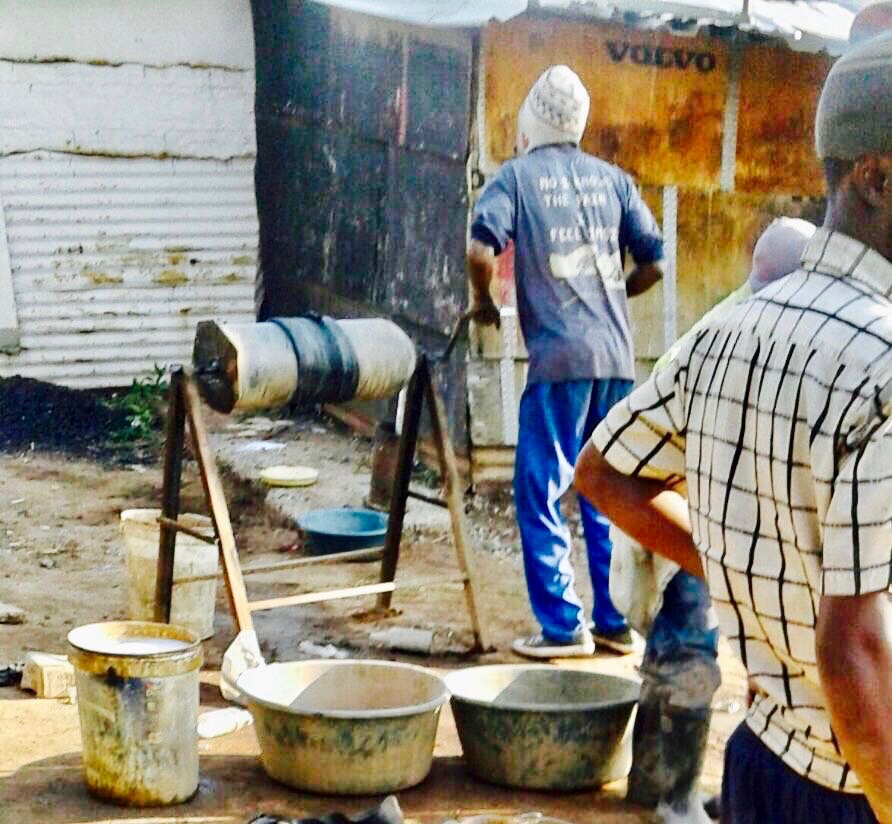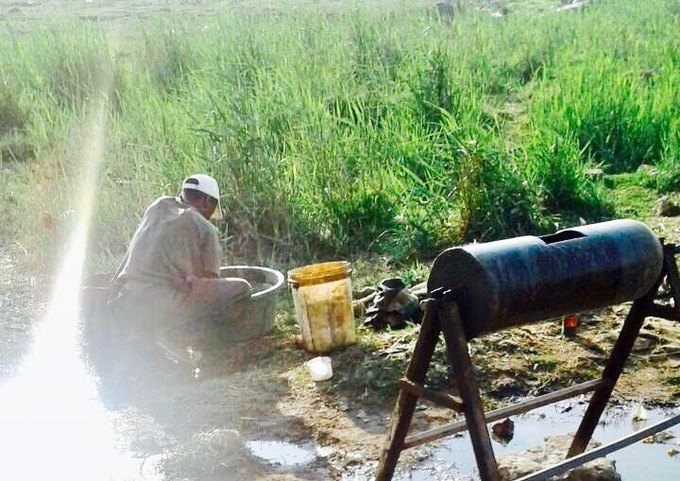Woman entrepreneur survives Wild West of informal gold mining
After her husband was gunned down, ‘Kensani’ took over the business
Kensani [not her real name], an immigrant from Mozambique, is unusual in that she is a woman running an informal mining business. A widower with two children, she inherited five gold refining machines [phendukas] from her husband and employs five young men to work the cylindrical machines that have to be spun by hand.
She takes over operating each machine herself when her workers take turns to go for lunch.
“It’s all about survival in a male dominated business,” she says.
She says her late husband taught her the tricks of the trade. He employed men who worked underground on the Nigel gold field; then refined what they found with the phenduka machines at Gugulethu informal settlement, between Welgedacht and Payneville, where she operates.
With the money from the gold her husband set up a tavern and a small grocery shop.
Kensani says a gang of men [she says “Lesotho gold gangsters”] wearing masks walked into their tavern around 8pm on December 2015. Drinks were on the house that night as they had made a good gold find and the tavern was filled with well wishers, dancing and drinking. Her husband was shot dead. They took all the money and all the refined and unrefined gold particles they could find on the premises as well as ten phenduka machines.
Other gwejas (informal gold miners) contributed money for her husband’s body to be taken home to Mozambique for burial.
Luckily, the men missed the five phenduka machines at the back of the house.
“I’m working on getting protection [a gun]. In case they try to backstab me like they did my husband,” says Kensani.
Police now frequent the area and, she says, confiscate their gold. Many refiners have moved on. She has never been arrested.
“Police feel sorry for me because I am a woman,” she says. “Luckily, they do not know that I’m in charge of my own business. They think I’m working for one of the gwejas. Sometimes, we get a tip off that police are in the area from our friends and we quickly hide our staff.”
Kensani makes sure she always has cash on her to bail out her staff when they get arrested and to pay for valuable tip-offs about when police will be visiting the area.
“I am a widow with no one to help me. My children have to go to school. They need clothes. They need food … As an immigrant, it is difficult to find a job these days. If I can manage to build a house back home in Mozambique and save enough to start a business, then maybe I can stop.”
Based on what people in the area said to GroundUp, Kensani seems to be well regarded in the community.
“I never thought a woman can survive in this business. But that one is one in a million. She doesn’t let any man mess with her. And besides, she makes good money. That’s all that matters,” said a gweja.

Next: R21-million urban renewal project left to rot
Previous: R1k loan balloons to R13k in two years
© 2017 GroundUp. 
This article is licensed under a Creative Commons Attribution-NoDerivatives 4.0 International License.
You may republish this article, so long as you credit the authors and GroundUp, and do not change the text. Please include a link back to the original article.



